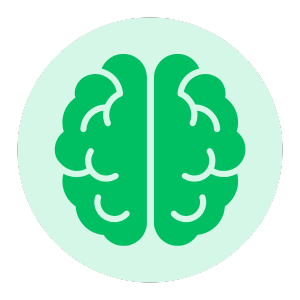Results are not a diagnosis and should be interpreted by a mental health professional. © 2023
Personality Disorders Test: Understanding and Assessing Personality Disorders
Learn about different personality disorders, diagnostic criteria, and available assessment tools
Personality disorders represent enduring patterns of inner experience and behavior that deviate from cultural expectations. Understanding these conditions through proper assessment, like a borderline personality disorder test or paranoid personality disorder test, is essential for accurate diagnosis and treatment. This comprehensive guide explores various personality disorders, their diagnostic criteria, and the specialists who treat them.
Explore Our Mental Health Assessments
Understanding Personality Disorders
Personality disorders are grouped into three clusters based on similar characteristics and symptoms. Cluster A includes disorders characterized by odd or eccentric behavior, Cluster B includes dramatic or emotional disorders, and Cluster C includes anxious or fearful disorders. Proper assessment often begins with screening tools like a borderline personality disorder quiz or avoidant personality disorder test, though formal diagnosis requires comprehensive evaluation by mental health professionals.
Common Personality Disorders and Their Assessments
Characterized by instability in relationships, self-image, and emotions. The borderline personality disorder test helps identify symptoms like fear of abandonment, unstable relationships, and impulsive behavior. In the ICD 10 borderline personality disorder classification, it's coded as F60.3.
Marked by grandiosity, need for admiration, and lack of empathy. Narcissistic personality disorder in women may present differently than in men, often with more covert manifestations of narcissism.
Characterized by disregard for and violation of the rights of others. Antisocial personality disorder specialists focus on behavioral interventions and risk management strategies.
Involves pervasive distrust and suspicion of others. A paranoid personality disorder test assesses patterns of interpreting others' motives as malicious.
Features social inhibition, feelings of inadequacy, and hypersensitivity to negative evaluation. An avoidant personality disorder test helps identify these patterns of avoidance.
Characterized by excessive emotionality and attention-seeking behavior. A histrionic personality disorder test assesses these dramatic behavioral patterns.
Differential Diagnosis: Similar Conditions
Understanding the difference between bipolar and borderline personality disorder is crucial for proper treatment. While both involve mood instability, bipolar disorder is primarily a mood disorder with distinct episodes, while borderline personality disorder involves pervasive patterns of instability in relationships and self-image. The question of is borderline personality disorder the same as bipolar is common, but they are distinct conditions requiring different treatment approaches.
Did You Know?
The Winnie the Pooh characters have been used as allegories for various psychological conditions in what's often called Pooh personality disorders or personality disorders Winnie the Pooh comparisons. For example, Eeyore has been described as representing depressive symptoms, while Tigger might represent ADHD-like symptoms. However, these comparisons are informal and not diagnostic tools. For more formal assessments, consider our depression test or ADHD test.
Specialized Concepts in Personality Disorders
Borderline Personality Disorder Features
Several specialized concepts are associated with borderline personality disorder. The borderline personality disorder favorite person phenomenon describes the intense focus on a specific individual for emotional support and validation. Petulant borderline personality disorder is a subtype characterized by irritability, impatience, and defiant behavior.
Other Personality Disorder Concepts
While not in current diagnostic manuals, self defeating personality disorder and masochistic personality disorder were previously used to describe patterns of behavior that undermine the individual's happiness and success. These concepts have been subsumed under other diagnostic categories in modern classification systems.
Celebrities and Personality Disorders
Public figures sometimes share their mental health struggles, leading to interest in celebrities with borderline personality disorder and famous people with borderline personality disorder. While this can help reduce stigma, it's important to remember that only qualified professionals can diagnose mental health conditions.
Assessment and Diagnosis
Formal diagnosis of personality disorders requires comprehensive assessment by mental health professionals. While online tools like a borderline personality disorder quiz can provide preliminary insights, they should not replace professional evaluation. The diagnostic process typically involves clinical interviews, standardized assessment tools, and sometimes collateral information from family members or other treatment providers.
Treatment Approaches
Treatment for personality disorders often involves psychotherapy approaches specifically developed for these conditions, such as Dialectical Behavior Therapy (DBT) for borderline personality disorder. Medication may be used to address specific symptoms or co-occurring conditions. Antisocial personality disorder specialists and other experts often employ specialized approaches tailored to each disorder's unique challenges.
Additional Mental Health Resources
Seeking Help for Personality Disorders
If you suspect you or someone you know might have a personality disorder, seeking professional help is essential. While online resources like a paranoid personality disorder test or histrionic personality disorder test can provide information, they cannot replace comprehensive evaluation by qualified mental health professionals.
Remember that personality disorders are treatable conditions, and many people experience significant improvement with appropriate therapy and support. Early intervention often leads to better outcomes, so don't hesitate to reach out to mental health specialists for assessment and guidance.
Explore our complete collection of assessments to better understand mental health conditions, or read more in our articles section for additional insights.
